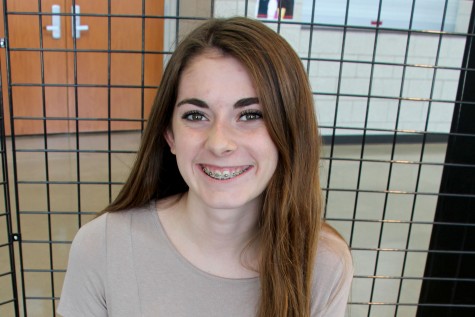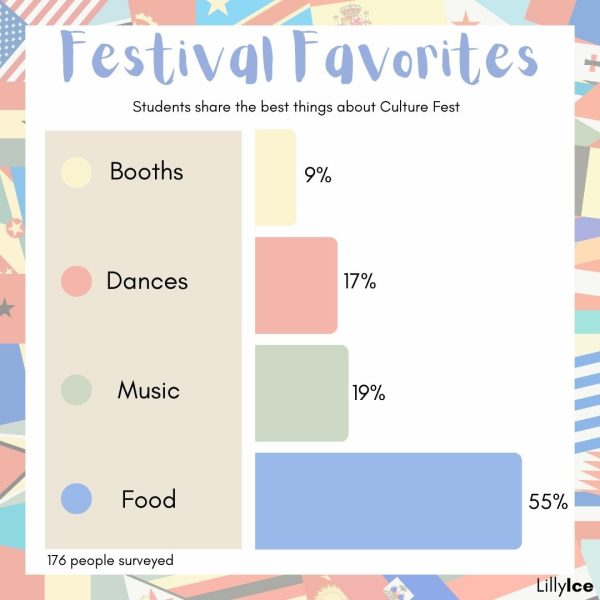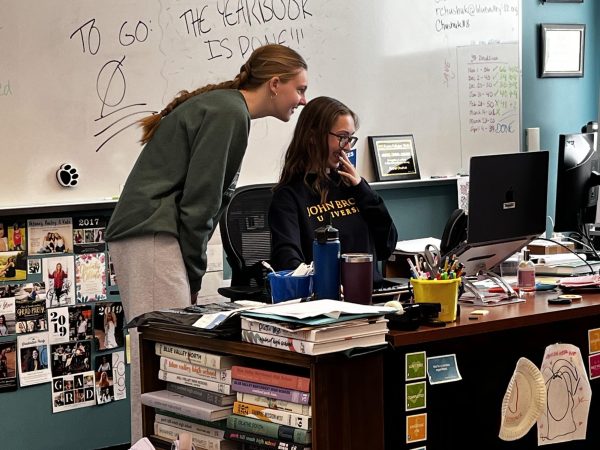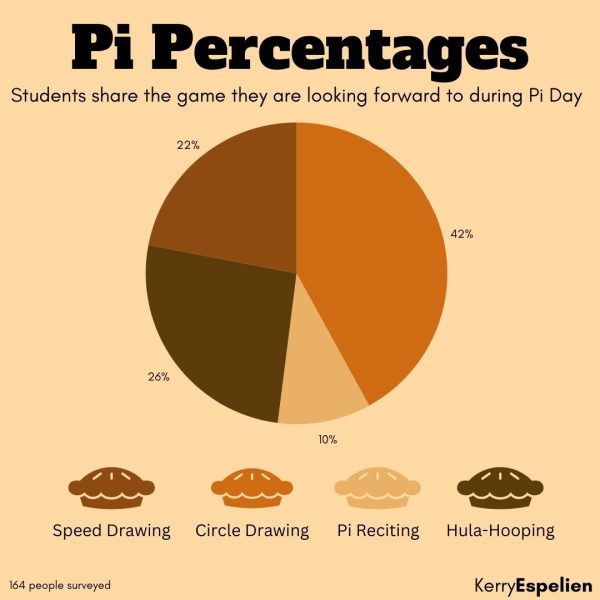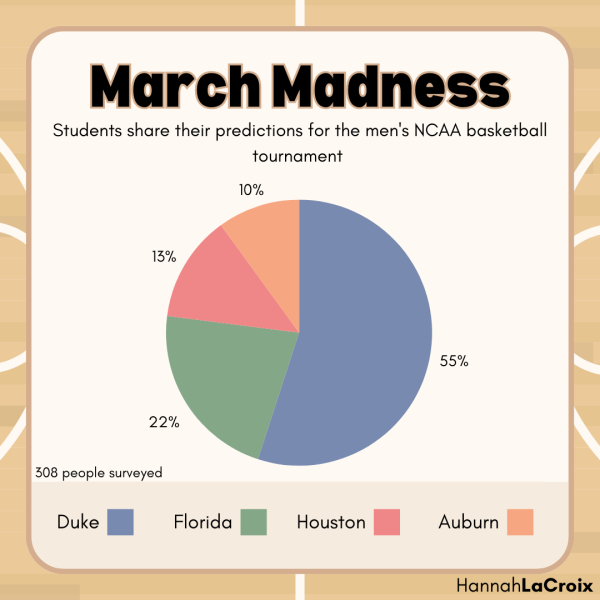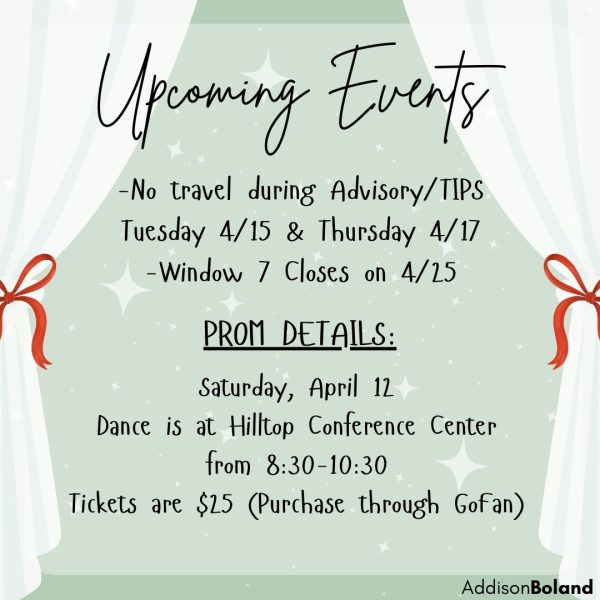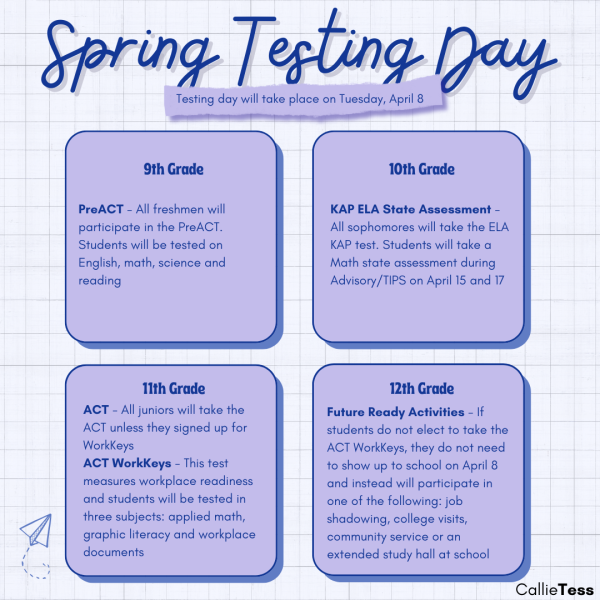Students share how they relate with music
 Music’s simple complexity attracts listeners in many different ways. Students have found music to play a significant part in
Music’s simple complexity attracts listeners in many different ways. Students have found music to play a significant part in
their life, whether they’re listening to a song to reflect their mood or trying to concentrate on a homework assignment. However, for some students, music is not solely for time-filling entertainment; it also connects deeper with their personalities.
Music is described as “an art of sound in time that expresses ideas and emotions in significant forms through the elements of rhythm, melody, harmony and color,” according to Dictionary.com. Virtually every culture has been confirmed to be tied to music in one way or another. Whether this be through dancing, singing, music on the radio, religious affairs, social needs, distraction from problems or expressing one’s feelings, music has relevance all around the world.
Musical sounds signal neurotransmitters in the brain to release dopamine, according to “The Power of Music, Tapped in a Cubicle” published by the New York Times in 2012. Dopamine controls the brain’s reward center and the movement of emotions in the brain. As people listen to music, dopamine is released to change emotions or to help focus, depending on the situation and the kind of music.
People are attracted to the sound of music because they can use it in a versatile selection of ways. The most common way people use music is to manipulate their feelings, to bring their emotions to a different state; others use music to better their concentration in activities such as homework, work or driving to achieve higher levels of success. No matter how people relate to music, it continues to have a grand impact on many students.
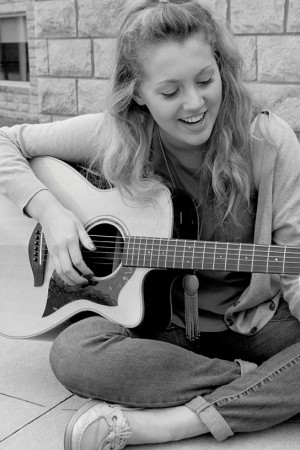 Senior Taylen Hitchcock relates music to oxygen and said it allows her to share her feelings with others and grasp how she is feeling.
Senior Taylen Hitchcock relates music to oxygen and said it allows her to share her feelings with others and grasp how she is feeling.
“The thing about music is a song can fit to whatever mood you are feeling,” Hitchcock said. “You can have sad songs, and they can speak to you and help you figure out different things.”
Hitchcock had a heavy influence of music beginning at a young age — from her dad’s former engagement in a rock band to her mom’s country and Christian musical influence — music has been a large part of her life since before she can remember. The result of these contrasting styles is alternative music, which Hitchcock explains is a combination of all types of music. Hitchcock’s passion does not end simply with listening but extends to the creation of her own music and the use of her own voice. She plays the guitar, the piano and sings to create an emotion and to tell a story.
“The chords more tell the story than the words that I write,” Hitchcock said. “That’s why I play a lot of other songs that I hear because that will speak to me in a certain way.”
Hitchcock plays a variety of songs by other artists that speak to her. She said she doesn’t have a favorite band but has different bands that speak to her depending on her emotion. She listens to bands like Misterwives to develop happy feelings and other bands such as Zella Day to calm her emotions. “Can’t Help Falling in Love” by Elvis Presley is a song Hitchcock connects to. Some may think of this song in a romantic way, but Hitchcock associates it with when she fell in love with music, her sophomore year.
“I can’t help but fall in love with music, and when I play that song, that’s exactly what I think of,” Hitchcock said.
Hitchcock is constantly pulling pieces from her life and her experiences and putting them into words. She does not have a specific spot for her writing or a time in which she sits down and composes an entire song but instead creates each piece as she feels inspired to do so.
“A large amount of the things I write are just sayings that catch me by surprise,” Hitchcock said. “For instance, if people are in a conversation and I walk by and hear them say something about how much they love each other, I will write down exactly what they say — word for word — because if it changed the way I look at something, maybe it could change someone else’s perspective, too.”
 Freshman Isaiah Tarwater savors the beat and the way alternative and indie music flow compared to other choppy genres. Tarwater instituted his interest in music at a young age due to his mom and dad’s taste, which he said was “terribly country.” As he grew older he began listening to hip-hop and popular music. He later found alternative music when he began craving something different from what everyone was listening to.
Freshman Isaiah Tarwater savors the beat and the way alternative and indie music flow compared to other choppy genres. Tarwater instituted his interest in music at a young age due to his mom and dad’s taste, which he said was “terribly country.” As he grew older he began listening to hip-hop and popular music. He later found alternative music when he began craving something different from what everyone was listening to.
Tarwater said he appreciates alternative music because there is more to it; the songs are not completely downtoned, but contain bits and pieces that are different. He said there’s more underneath the surface of the songs than what meets the eye, giving each song a personal meaning.
“It’s more with certain songs,” Tarwater said. “[Certain songs] remind me of different areas and people, and what I’ve been through, not even I, but what other people have been through.”
Music is a way of relaxing for Tarwater. In the midst of the everyday stress a high school student faces, he turns to music to unwind. He began listening to music other than hip-hop and pop and is now interested in Twenty One Pilots and classic bands such as the Foo Fighters, believing they have boosted his self-confidence. Tarwater said his personality has been built upon as he started to see artists express themselves through the lyrics and the beat of songs. He listens carefully to songs and repeats lyrics he misses if his attention fades. Through this close examination, Tarwater realized he too could express himself like the artists he is so fond of.
“Music has built up my personality and self confidence showing me how [musicians] can do what they want, so why can’t I,” Tarwater said.
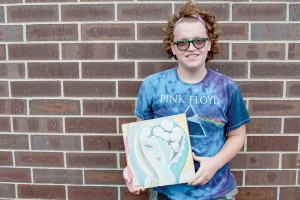 Sophomore Joe Ayres finds alternative music more intriguing because it lacks specificity to one genre and one sound, offering a diverse culture. Ayres listens to a wide array of artists including Ben Folds, a classically trained musician who plays alternative music. He collects his music from before 2009 on a hard drive, but Ayres downloads or purchases his recent music, adding some to his vinyl collection. Ayres picks out what he is going to listen to depending on how he feels at the moment.
Sophomore Joe Ayres finds alternative music more intriguing because it lacks specificity to one genre and one sound, offering a diverse culture. Ayres listens to a wide array of artists including Ben Folds, a classically trained musician who plays alternative music. He collects his music from before 2009 on a hard drive, but Ayres downloads or purchases his recent music, adding some to his vinyl collection. Ayres picks out what he is going to listen to depending on how he feels at the moment.
“I think the music you listen to can influence your disposition,” Ayres said. “If you listen to happier music, sometimes you’ll be happier. And darker, more sad music, you are probably going to feel sad and be a little darker.”
Depending on the reason Ayres is listening to music and his mood, he will envelop himself within the lyrics and the tune to grasp all aspects of the song. He said opening his eyes to more types of music has also changed his perspective. allowing him to be more open minded and expressive.
“[Music] has helped me to be more open minded and expressive,” Ayres said.


